If you dislike Breath of the Wild, you have bad taste

Shut up. No, listen: shut up. It’s been nearly six years, and gamers are still at it. I can’t log onto Twitter without a game “critic” telling me that The Legend of Zelda: Breath of the Wild isn’t as good as everyone believes. You know, I really don’t care about whether or not it’s one of the highest-rated games of all time according to aggregate sites, and I don’t care that it has sold just shy of 28 million copies as of September 2022 – yes, that’s 28 million, not a typo – because all of that is immaterial. Remove all of those silly stats, and guess what? It’s a damn good game, and one of the best Zelda games.
And despite that, in the year of our Lord 2023, people are online, moaning about Breath of the Wild. Cool. Great. Now, if you wish to be the ultimate contrarian, you can go right ahead, but I am long since sick of people inviting themselves into my mentions to tell me how that thing I like sucks. Guess what? Not only are you, in fact, the one that sucks, but your take is as tired as I am when I get quote tweeted.
I’ve heard all the complaints now. Empty world, bad gameplay (???), lack of story, poor dungeons, disappointing items, and you know what? There are some valid qualms here, just not for the reasons most people like to spout. It’s been six years, and while the low-follower count boys have professed their distaste for Breath of the Wild, repeating the same examples ad nauseam, I’ve been biding my time, stewing on it, and having a big think. Wild, I know. I’ve stared long and hard at Breath of the Wild to see if I can understand where these people are coming from, and, to a certain extent, I get it. I don’t agree, I think they’re wrong, but I get it. Allow me to elaborate.
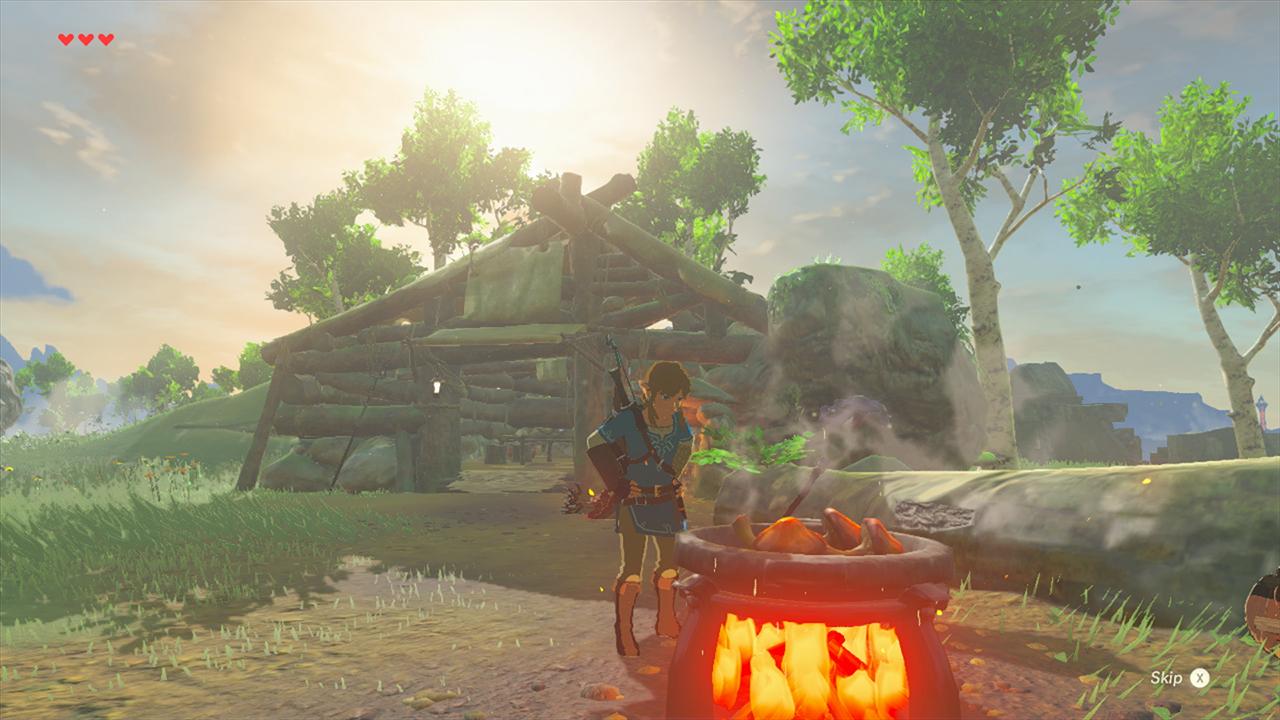
Let’s start off with the big complaint that I hear most often: weapon degradation. In Breath of the Wild, every weapon Link wields will inevitably break, save for the Master Sword – and even that has a cooldown preventing you from using it at its strongest while in battle. It can be frustrating to take control of the most powerful weapon you’ve seen in the game yet, and have it fall to pieces after mere minutes of combat.
I totally get it, and it is a multi-layered issue which is at least partially down to skill. The better you are at the game, the more efficient you are at making the most of your weapons and their limited durability. One player could be facing a severe weapon drought, but another, more prepared, more sexy (me) player might have prepared better and have pockets full of swords, axes, and boomerangs. But that’s not the only issue of course, it’s a matter of satisfaction. Overcoming a big challenge, to be rewarded with a weapon, only to have it disappear forever, with no method of repair, minutes later? Doesn’t seem like much of a reward.
But, hold on, when was the last time you were playing an RPG and, mid-way through the game, swapped out to your starter sword? What real, meaningful, difference does it make if that starter sword instead broke, disappearing from your inventory? To be fair, it’s a bit different when it’s the most powerful weapon you’ve acquired on your journey thus far – but it won’t be. Save it for a tough fight, and you’ll inevitably acquire increasingly more capable tools, until you finally get that upgraded Master Sword. If it comes down to this or taking half an hour out to find a vendor with enough gold to buy all my excess junk weapons, I know which I’d rather take.
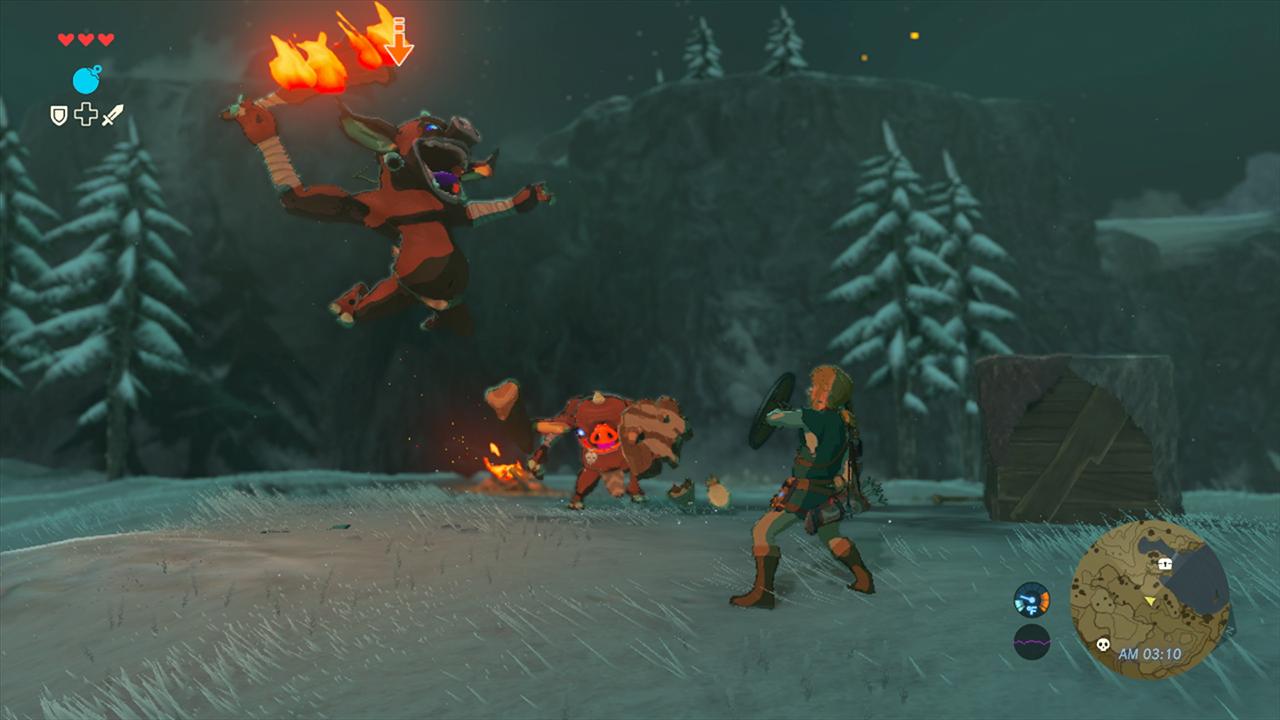
This does cause a few issues with the game design elsewhere, though. Due to weapons being so fragile, you also need to ensure they’re plentiful in the game world. This means a lot of chests end up rewarding players with items that are ultimately temporary. Worse yet, it also means that players need to be able to scramble for new pain implements in a pinch, which necessitated many of the monsters you fight in the world being humanoid, so they can wield weapons for you to steal in battle. As a result, it rarely feels as varied as past Zelda adventures, even if that base combat system has been expanded massively.
Of course, worst-case scenario, Link is gifted infinite bombs before you’re even able to leave the tutorial area of the Great Plateau, and these can be used to blow weapons out of enemy hands, but the skill issue persists, and I myself understood how it felt to feel underequipped when I decided to take on Master Mode. But watching friends of mine struggle against boss monsters, only to finally succeed after throwing the final weapon in their inventory and breaking it against the creature’s jaw made me appreciate the system. With every weapon that broke to pieces, tensions rose, and the final elated cry of victory was unlike anything else. Though, that too highlights an issue that BOTW’s systems introduced: combat challenges were… combat challenges.
The fact is, most enemies in previous Zelda games are not combat challenges where you memorize attack patterns in order to parry and counter. They’re puzzles. You find the right item or gimmick to weaken your foe, and then take your opportunity to slash wildly with your sword, inflicting as much damage as possible, repeating until victory. These puzzle bosses are definitely more memorable than breaking down an arbitrarily long HP bar, but once you know the gimmick, repeat playthroughs are barely a challenge. Traditional Zelda games are large puzzle boxes, and once you’ve found all the keys and what they open, there’s not much challenge left. And hey, at least the long HP bar allows you to use any and all tactics available to beat them, instead of sticking to the script.
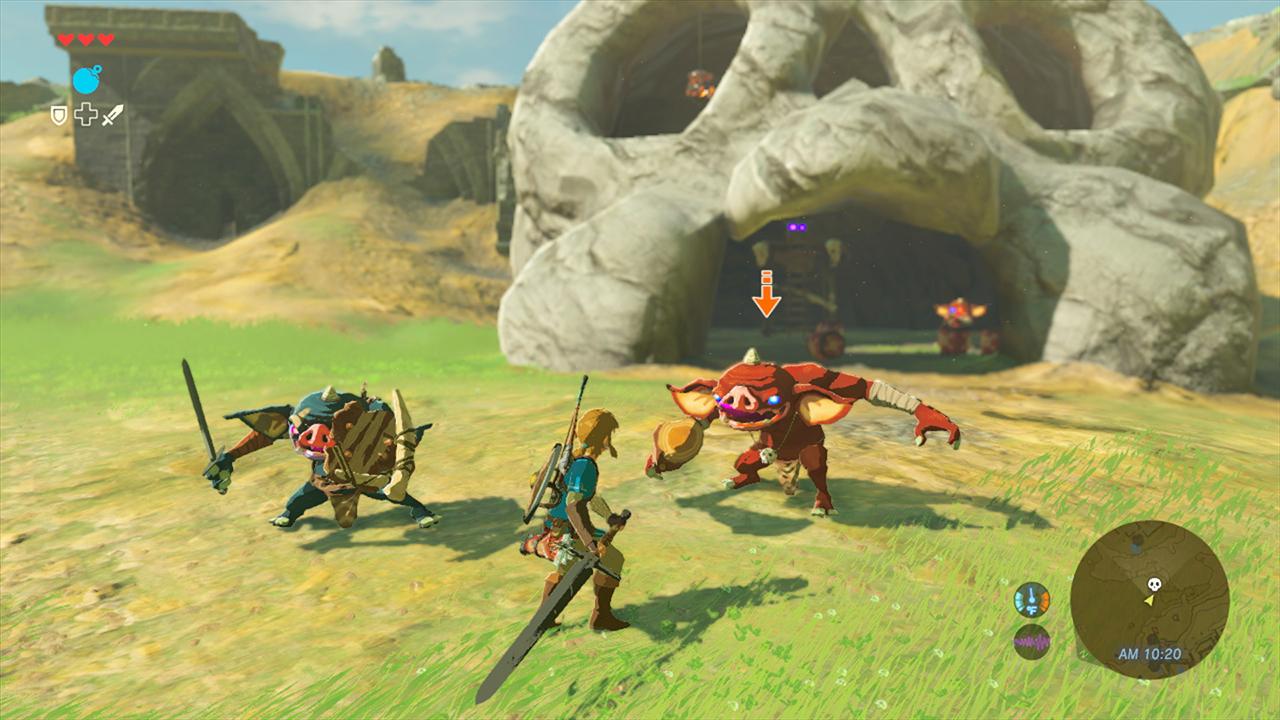
Breath of the Wild eschews the puzzle box design and instead embraces a new open world philosophy, one that few others games before or since have truly attempted – even Elden Ring requires you to collect a few precious items before you can challenge the final boss. Instead of walking across Hyrule Field to tick the boxes off in your fetch quest or visit the next key area, traversing the land in Breath of the Wild is the whole game.
Yes, we’ve all heard this one too: you can’t climb cliffs when it’s raining. Believe it or not, this is actually a complaint rather than a statement. Aside from a few select areas with fixed weather, BOTW has dynamic weather patterns, which means rain could start pouring down as you attempt a big climb, which will immediately put a damper on proceedings.
I almost feel a little bit sad when I hear this one. At launch I heard so many stories from players about the big adventures they went on – none of those stories were ‘I played a side quest and actually liked it’ – it was all dynamic stuff. Paragliding from a mountain as a dragon rises from Lake Hylia, finally making it atop a hill in the rain thanks to stamina item abuse only to find one of the rarest mounts in the game, using Stasis to launch from a boulder and up onto a mountain, and even simple things, like finding shelter during the rain, making a bonfire with wood and flint, and resting there until the weather changed. It’s quiet, contemplative, and entirely player-driven. The player reacts and adapts to the shifting nature of the world around them, and the world doesn’t direct or force anything. Finding your way to climb that cliff is the game, and how satisfying that will be is all down to you.
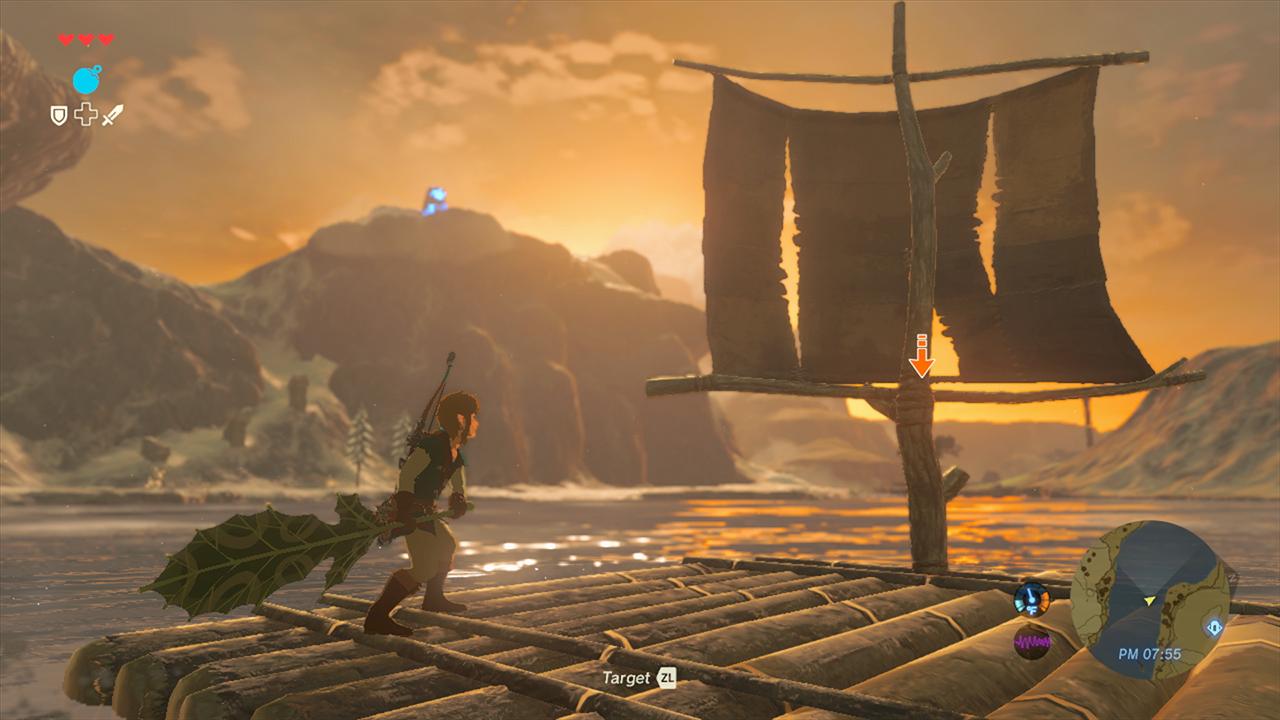
But again, this ambitious open world design has a few caveats, the biggest one being the story. Allowing the player to go anywhere, tackle anything in any order, left the story feeling disjointed. There are, essentially, five stories to follow, one for each of the areas that is home to a Divine Beast, and the past that our amnesiac hero has forgotten. Each of the four stories surrounding a Divine Beast are, admittedly, a bit basic, and the past that Link has forgotten can be reclaimed entirely out of order – and likely will be.
It’s hard to stay engaged when the story is told to you in random fragments that you’ll need to assemble later on. For me, the story of Breath of the Wild is the story of how I traversed Hyrule to defeat Ganon – each of the little anecdotes I remembered and shared with friends while playing is the story of the game. But I can’t help but recognize that this isn’t what everyone is playing for. Strike one up for the haters, this point is hard to argue against. We all know Zelda stories are crafted in post in order to service the gameplay, but that doesn’t mean they’re not special to players.
The same goes for the Divine Beasts. The four Divine Beasts are the closest thing to “traditional” dungeons that Breath of the Wild has, and each is a large creature that you’ll crawl around inside in order to solve puzzles and make your way through. I’ll level with you: these aren’t my favorite part of the game, by any means. Some Divine Beast gimmicks are lovely – being able to control or rotate some body parts, altering the dungeon itself, are lovely tricks that traditional Zelda fans should enjoy. Though, they’re short and sweet, and possibly most damning of all, they’re incredibly dull to look at, all sharing the same suite of textures, representing the ancient ruins that litter Hyrule.
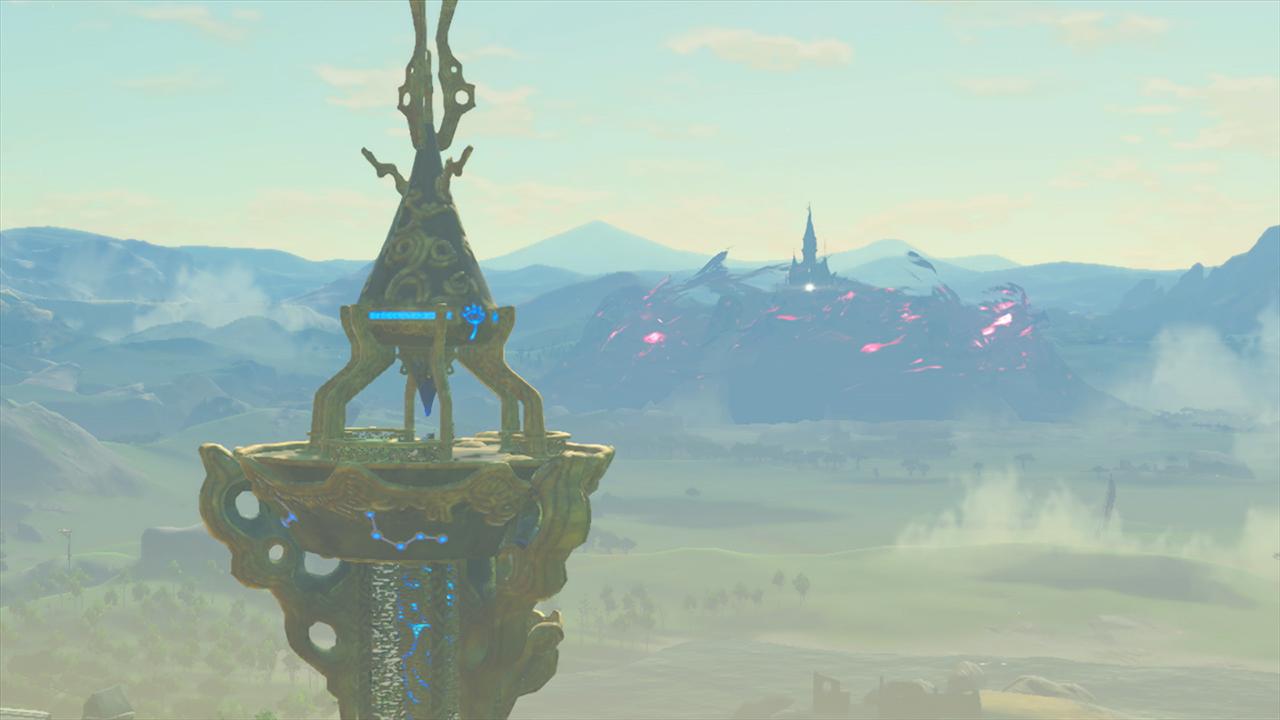
Of course if you want a more traditional Zelda puzzle experience, the Shrines are here for that reason exactly. Each Shrine features a puzzle that would either fit right at home in a classic Zelda game, or something entirely new that abuses the new unique abilities you have access to. But again, they’re all aesthetically identical, right? I’ve come to realise that, both when it comes to the Divine Beasts and Shrines, that sense of being in a unique place is incredibly important, along with completing a unique task.
Delving deep into Lord Jabu-Jabu’s belly in Ocarina of Time isn’t enjoyable simply for the puzzles, but the sense of exploration, saving Princess Ruto, and improving Zora’s Domain for all its inhabitants. Same goes for when you remove the poison from Majora’s Mask’s swamp. The cause and effect – along with those puzzle bosses – are a huge reason why traditional Zelda dungeons are so beloved and memorable because, let’s face it, the dungeon design certainly isn’t why people love Wind Waker. When it comes to dungeons in Breath of the Wild, I simply think people are misunderstanding what makes them love those previous examples so much. Breath of the Wild didn’t actually change things up too much mechanically – other than allowing you to cheese puzzles by coming up with outside the box solutions – in this respect, but it sure did aesthetically, and in terms of reward.
And this is my final point: reward. As mentioned above in regards to treasure chests, some people have a problem with the rewards you get in BOTW. The best example is, of course, the Korok Seeds. There are 900 Korok Seeds – a frankly absurd amount – and your ultimate extrinsic reward for collecting them all is Hestu’s Gift. It looks like poop, and the description says it smells bad. Yes, this is, quite literally, a polished, golden turd for all of your hard work.
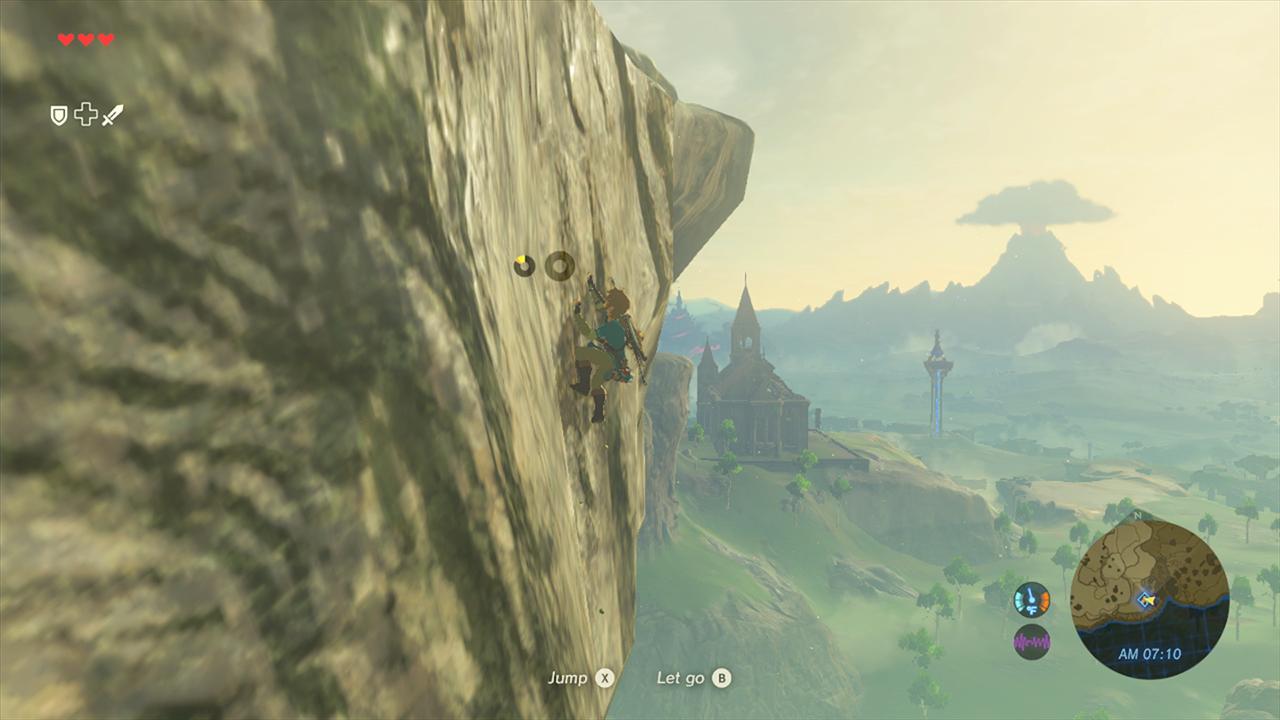
In an interview with IGN, Hidemaru Fujibayashi, BOTW’s director, states that they “just kind of thought it would be funny to make that a big joke.” If I may extrapolate on Fujibayashi-san’s statement here, (and potentially misunderstand it entirely,) Hestu’s Gift, to me, feels like a meta-commentary on the state of open world games, and the pointless exercises they’re stuffed with.
Korok Seeds themselves are, essentially, tokens you receive for exploration. Climb a big hill, find a rock on top? Pick it up and you’ll receive a Korok Seed. The seeds can be exchanged for more inventory space – very useful, honestly – though they essentially act as invisible map markers. All those question marks you’d see littered on your map in The Witcher 3? Korok Seeds are essentially those – open world filler to make the world feel populated, only instead of dropping a bomb into a monster nest, you’ve made the journey to a unique location, figured out an obtuse statue puzzle, or even just stared at apples on a tree until you decided to experiment with them. Korok Seeds are never highlighted in BOTW – not until you get the optional DLC Korok Mask – so the only way a player can actually obtain them is through ingenuity, experimentation, or blind luck.
The best Korok Seeds tempt you into experimentation without a single word of dialogue – they rely on the player being curious about their surroundings. There are a few puzzle types that repeat throughout the game, and frankly, only your first instance of completing any of them is interesting. One of my favorites is the apple tree puzzle. In multiple locations you’ll be able to find three apple trees in a row. The trees will certainly look conspicuous, but there’s no induction as to why. If you examine the near-identical trees and shoot off excess fruit so they all contain the exact same apples in the same locations, you’ll receive a Korok Seed. Mind, players on YouTube have found some inventive ways of solving this puzzle using the game’s mechanics. Just check the comments to see people bewildered by this puzzle as recently as a few weeks ago.
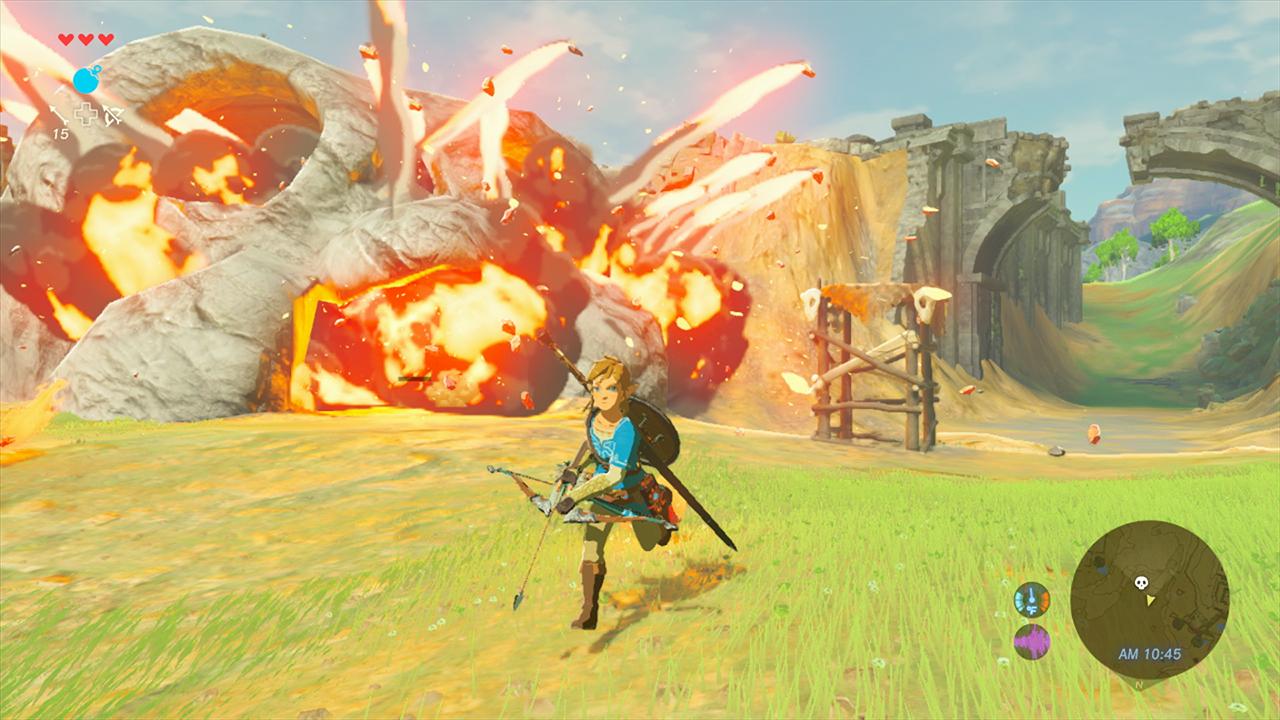
The Korok Seed here is a paltry reward – but I don’t see it as one. It’s a token to mark my achievement, a stamp in a book, but it’s not a reward. More inventory space is nice, but that’s hardly the most exciting prospect either. The reward was entirely intrinsic. If you’re one of the players that rushed to YouTube for an answer, it won’t resonate with you in quite the same way, but I figured out this puzzle alone after more consideration than I’d care to admit. I felt ecstatic, and just like those old Zelda dungeons I’m nostalgic for, the puzzle never quite felt the same again – a process of going through the motions instead of feeling clever and inventive as I played.
Whether it’s climbing a cliff in the rain, solving an obtuse puzzle, or beating a boss while abusing the game’s mechanics, all of the rewards in Breath of the Wild were, for me, intrinsic. The game didn’t need to mark my success with a weapon, or a gem that grants me +3% base attack damage when using my charged R1 attack, or some other pointless stat-enhancing macguffin that clogs up my inventory.
While playing Breath of the Wild, I was the director of my own story about a twink called Link exploring the land of Hyrule. I had some guidance in the form of landmarks and conspicuous things on the horizon that could’ve been arrows for all intents and purposes, but where to go, what to do, and most importantly, how to do it was all down to me. This game’s rewards are all about your decisions and your journey, and that’s all entirely lost as soon as you decide to toggle on a quest waypoint and walk towards it, your peripheral vision blind to the opportunities that surround you.
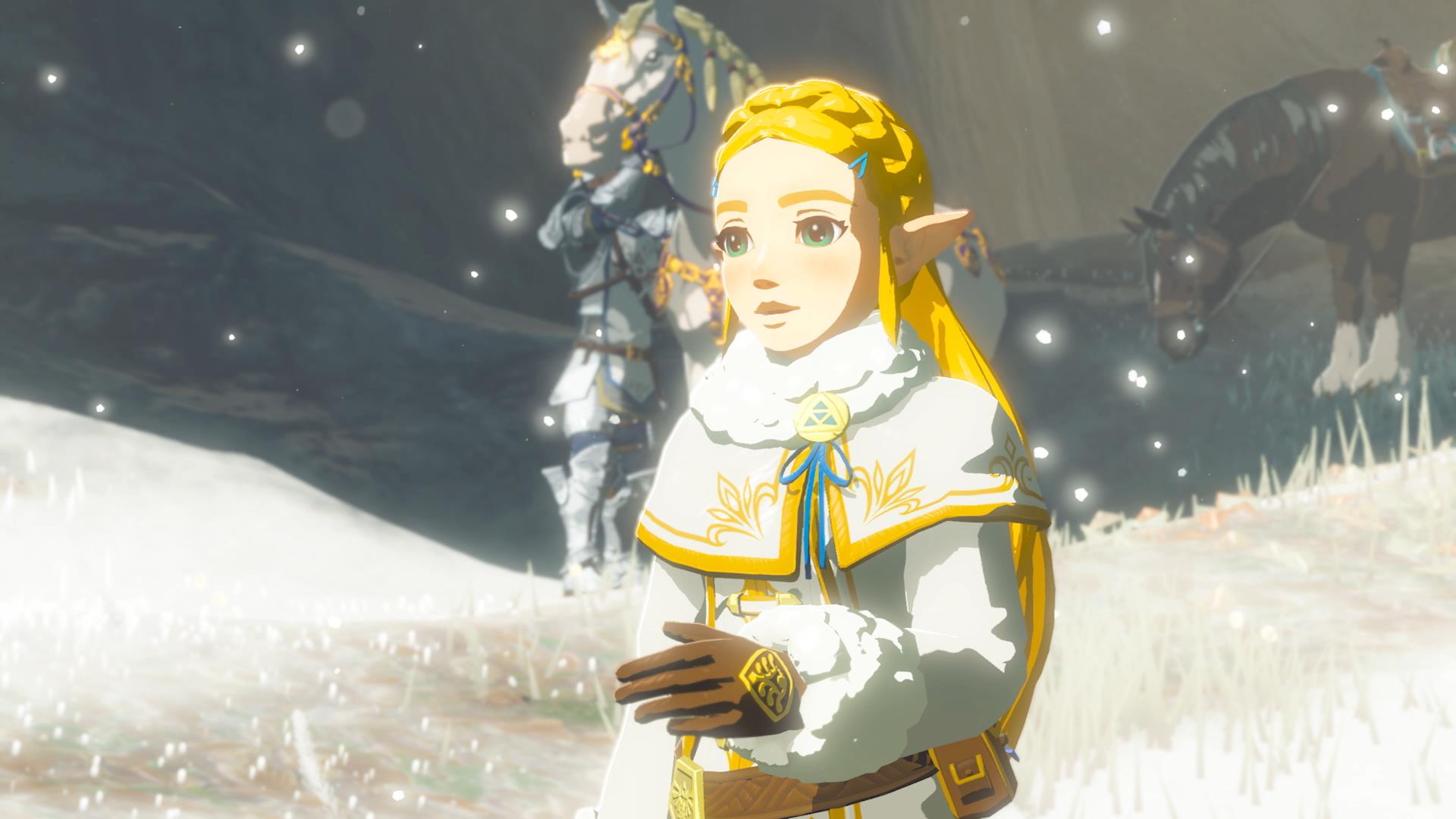
After six years there’s still no game quite like Breath of the Wild. I didn’t even begin to talk about the immersive sim-inspired ways you can approach everything thanks to the abilities unique to this Zelda game! That’s why, despite all the delays and personal fears I have over what it could do wrong, Tears of the Kingdom is my most anticipated game of 2023. If it can make me feel half as creative and smart as Breath of the Wild did, it’ll be the game of the year. Now that you’ve made it this far into my magnum opus, do me a favor: don’t @ me.
